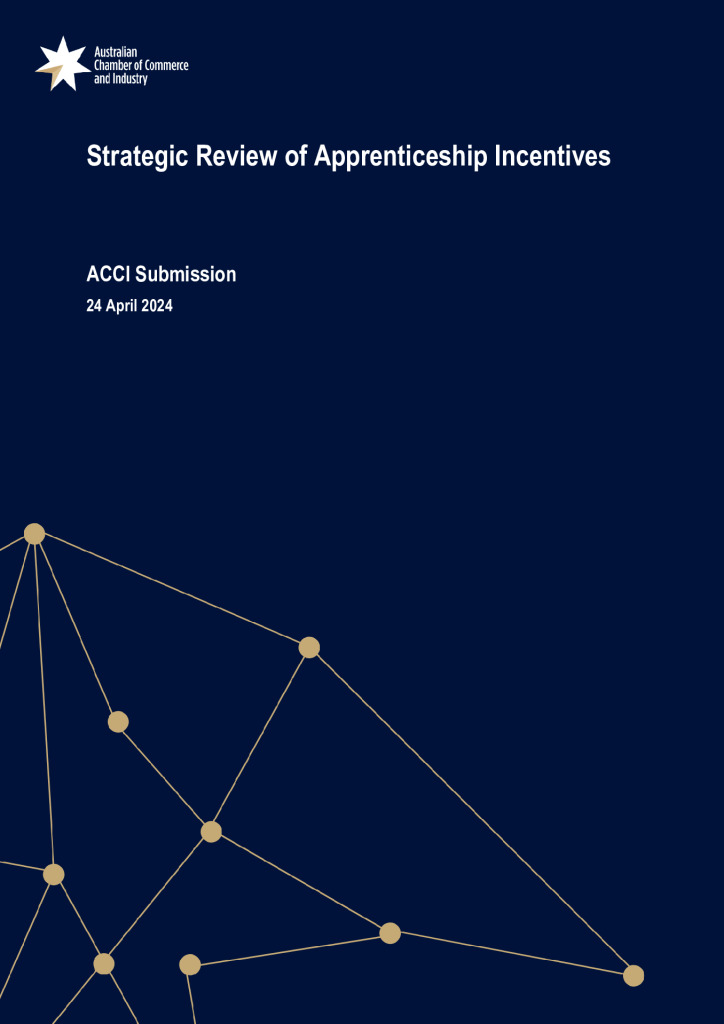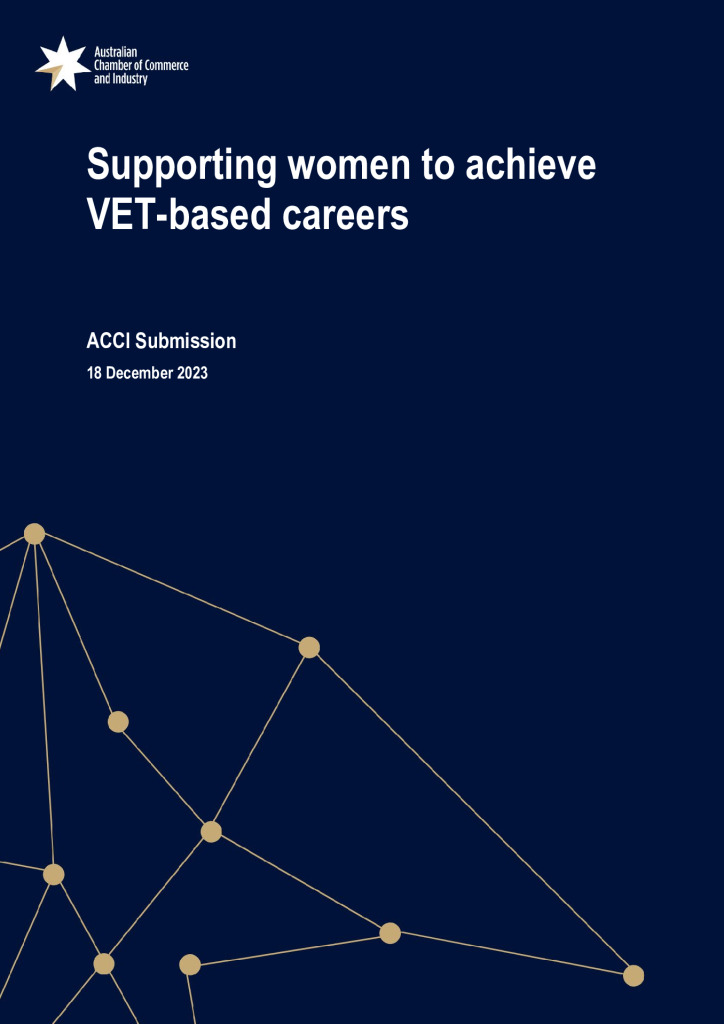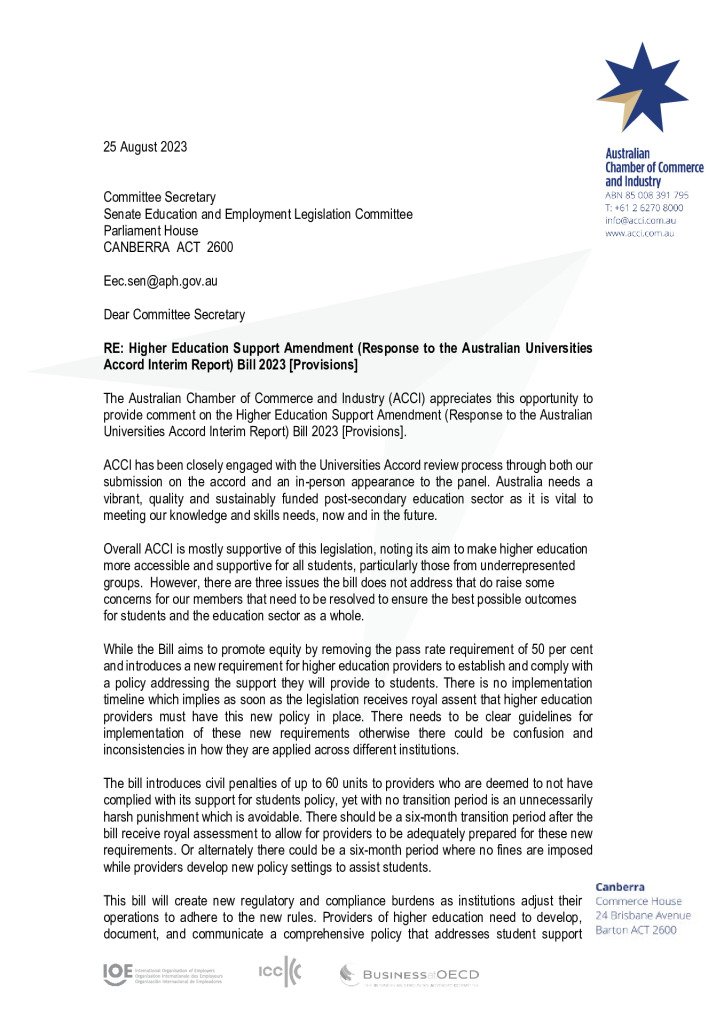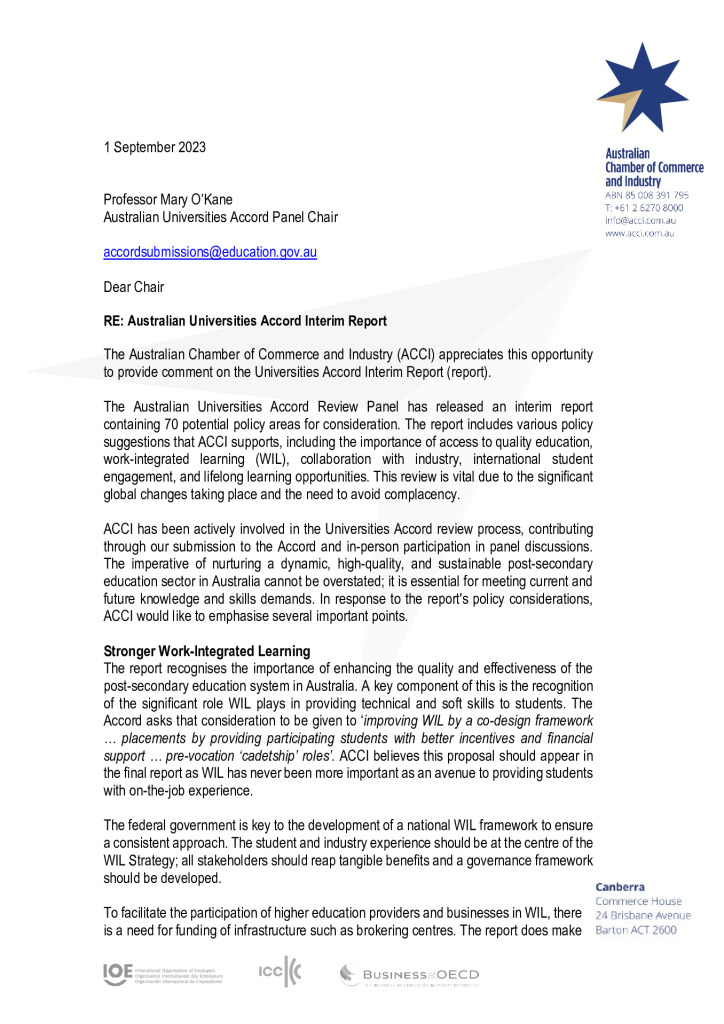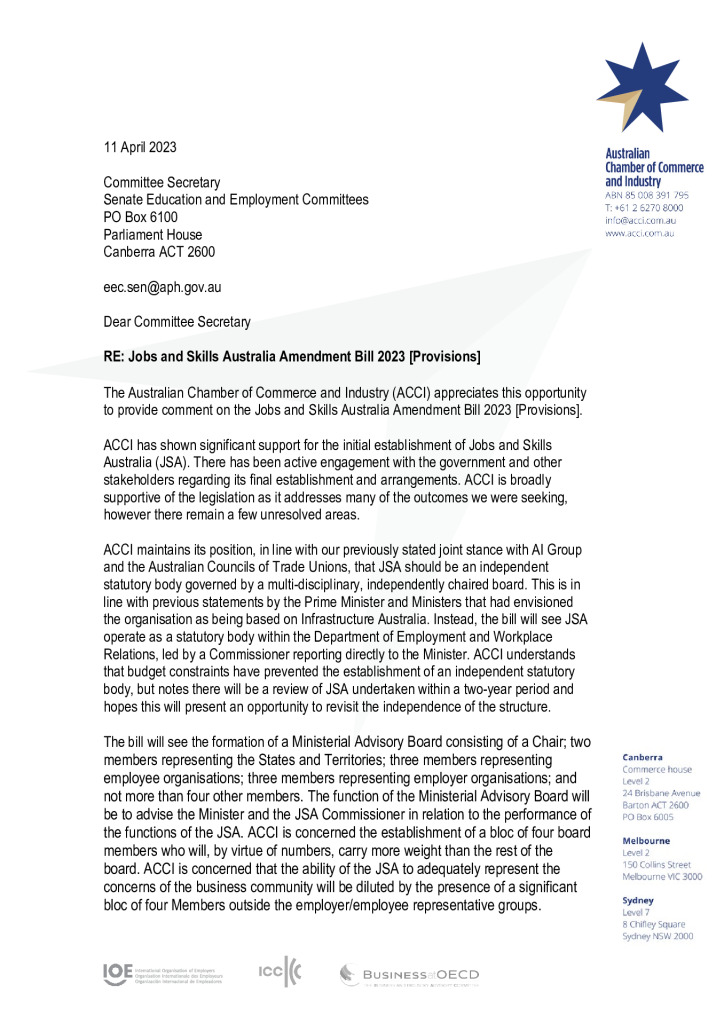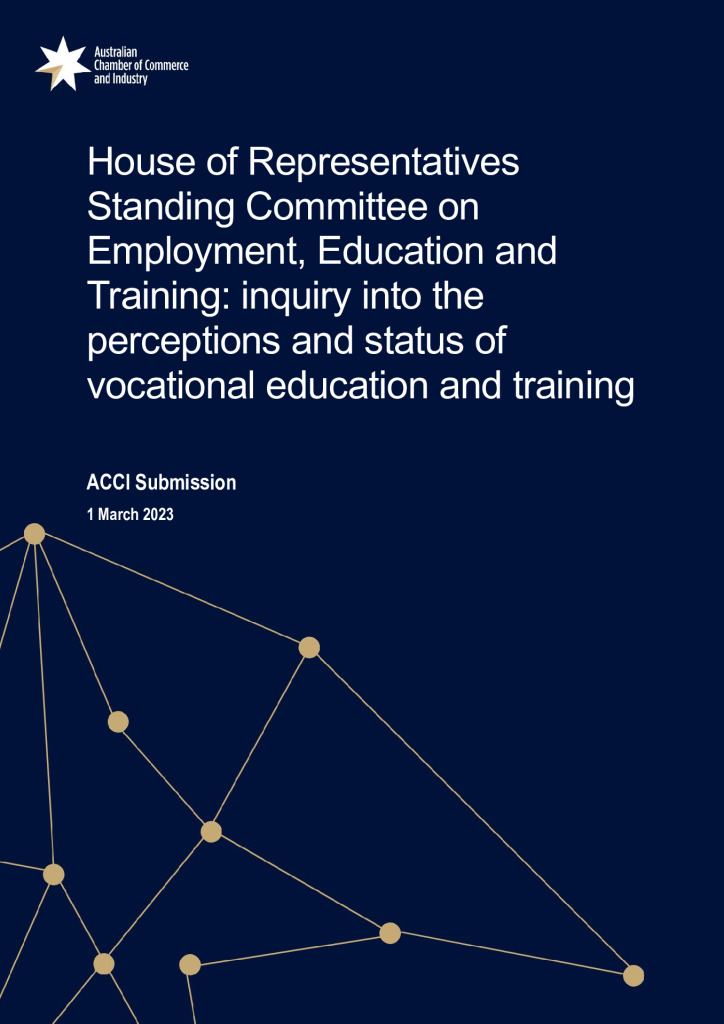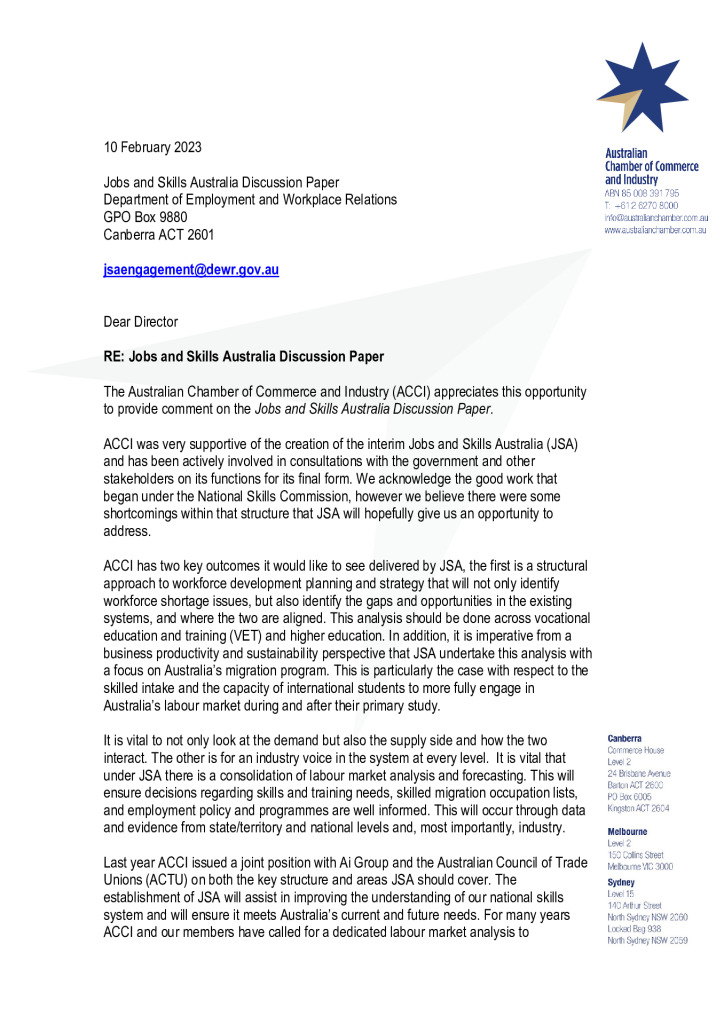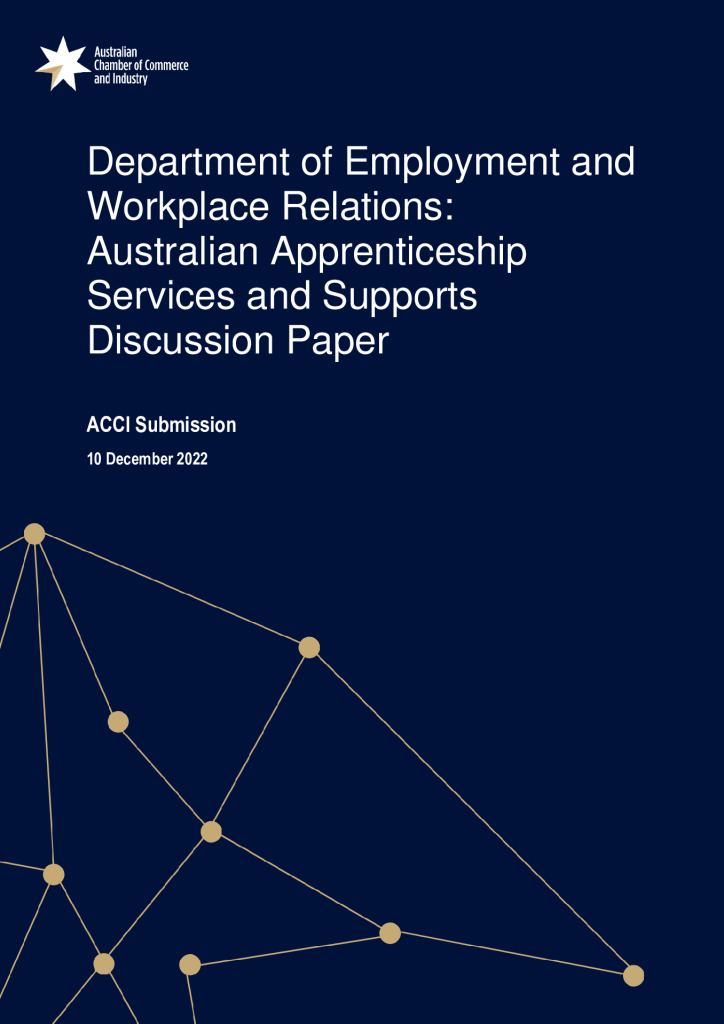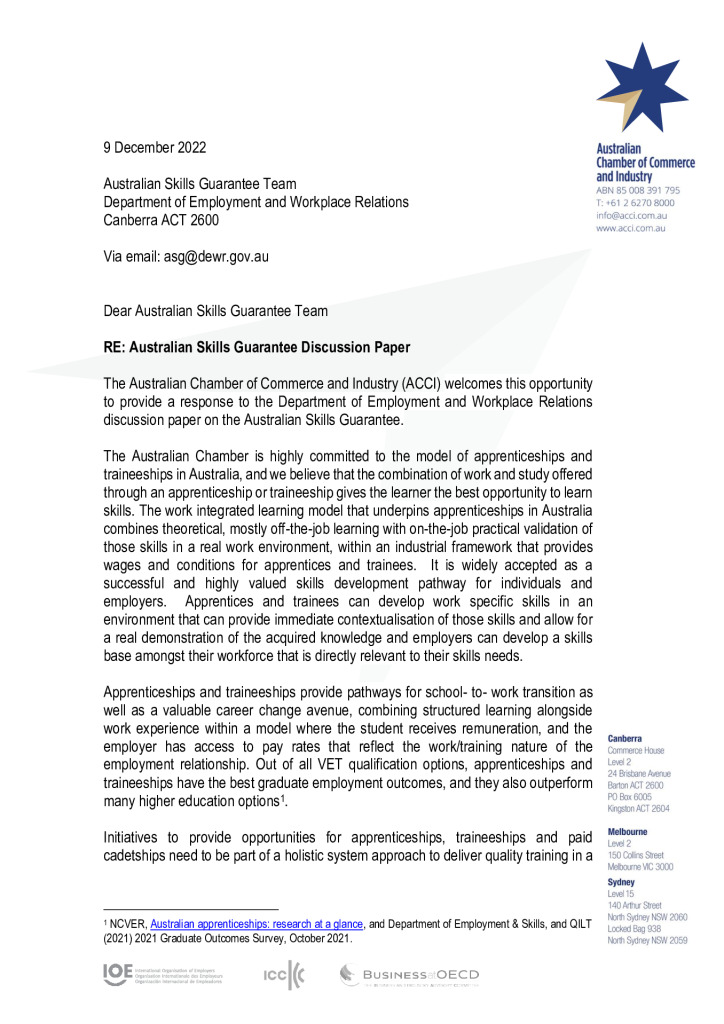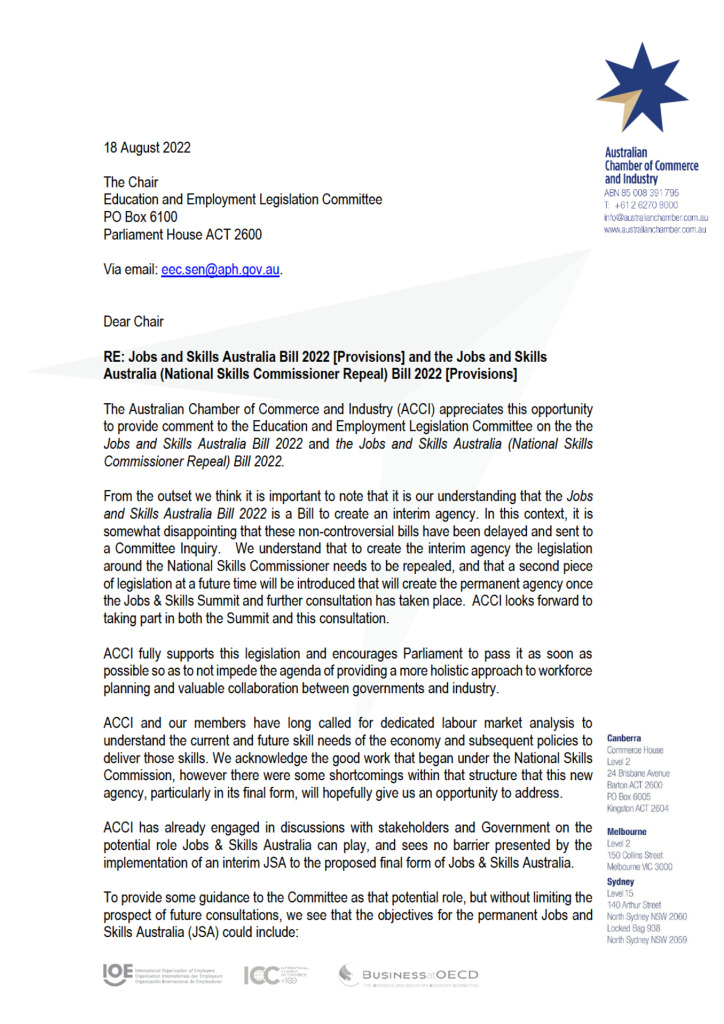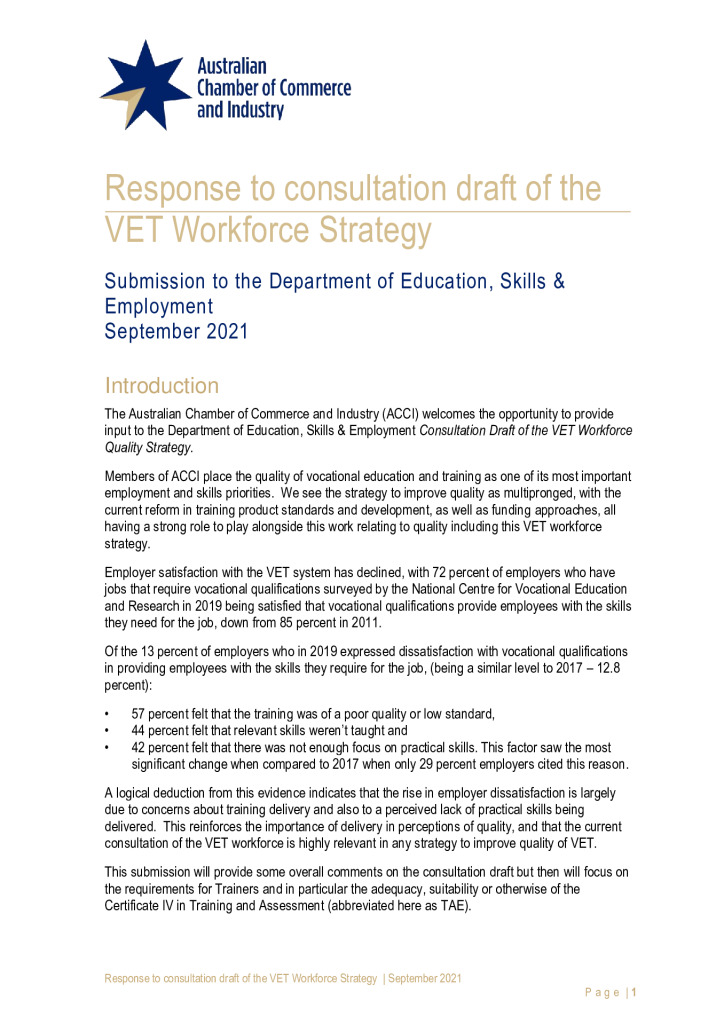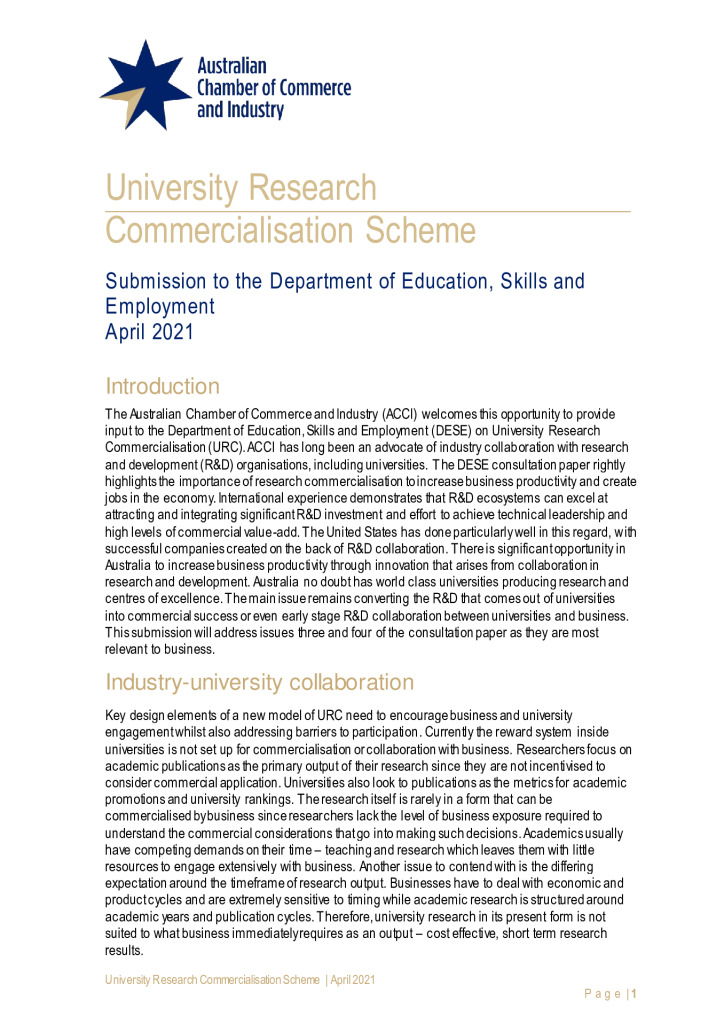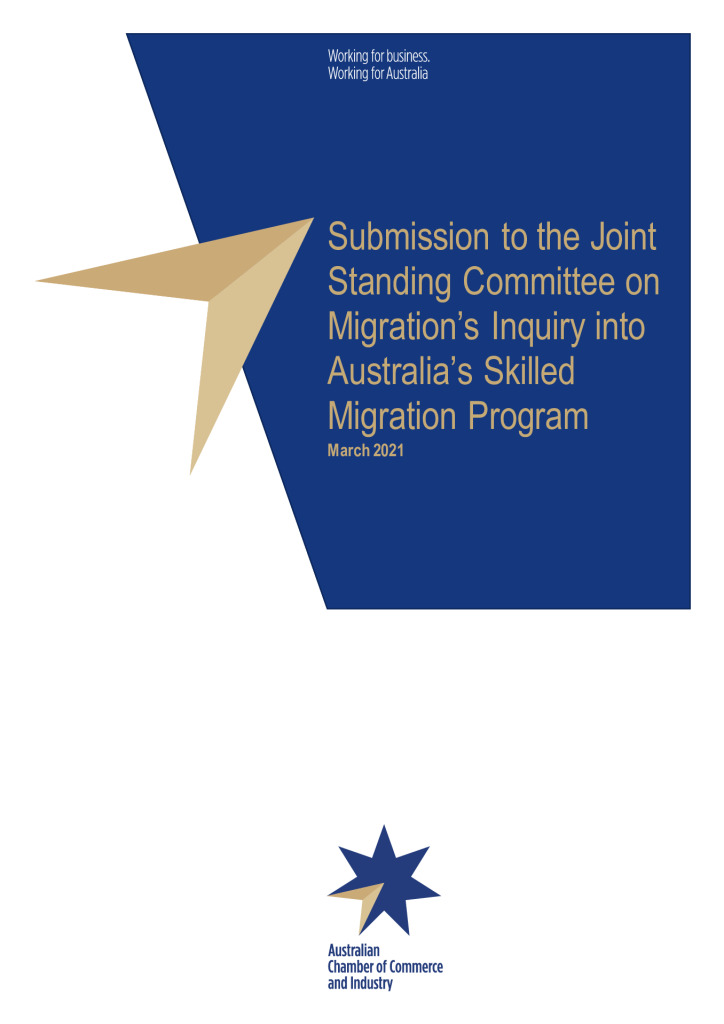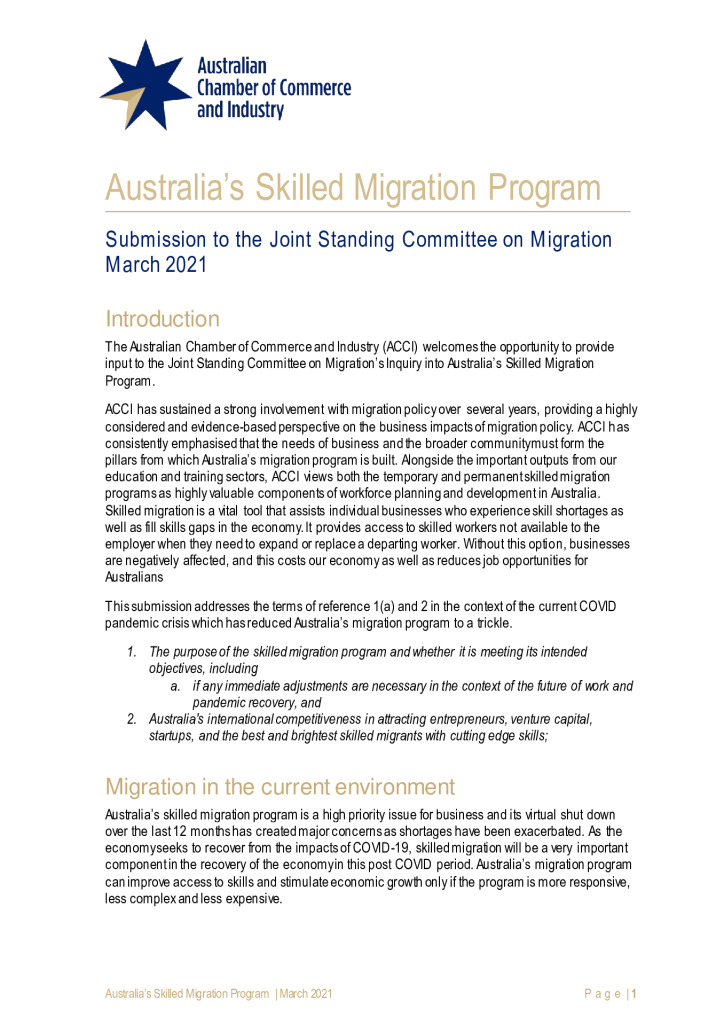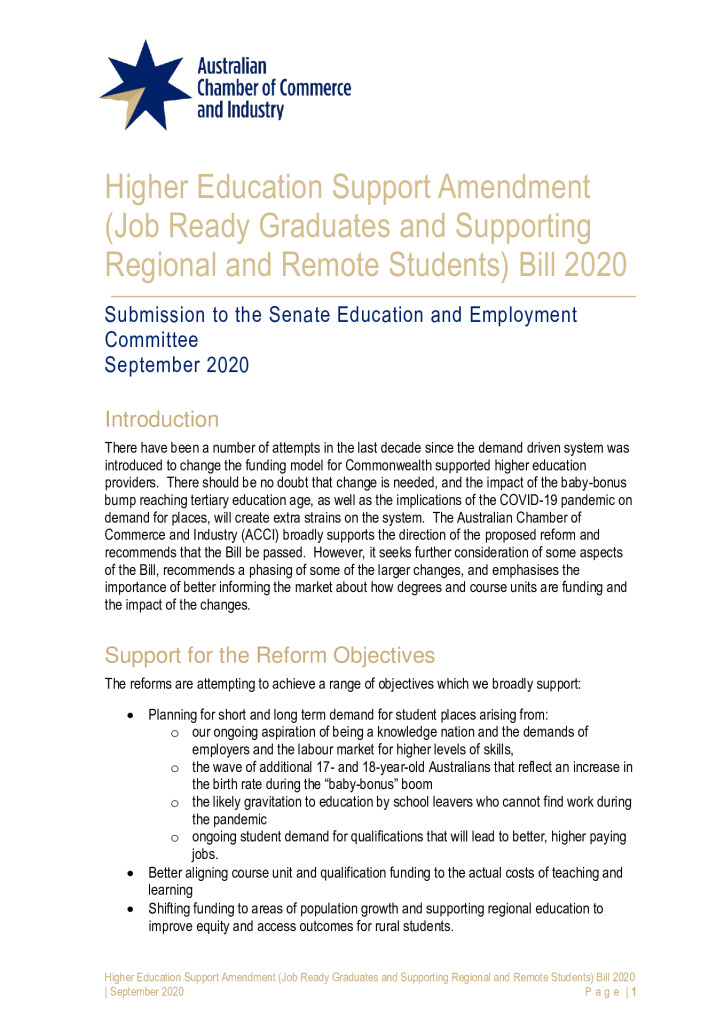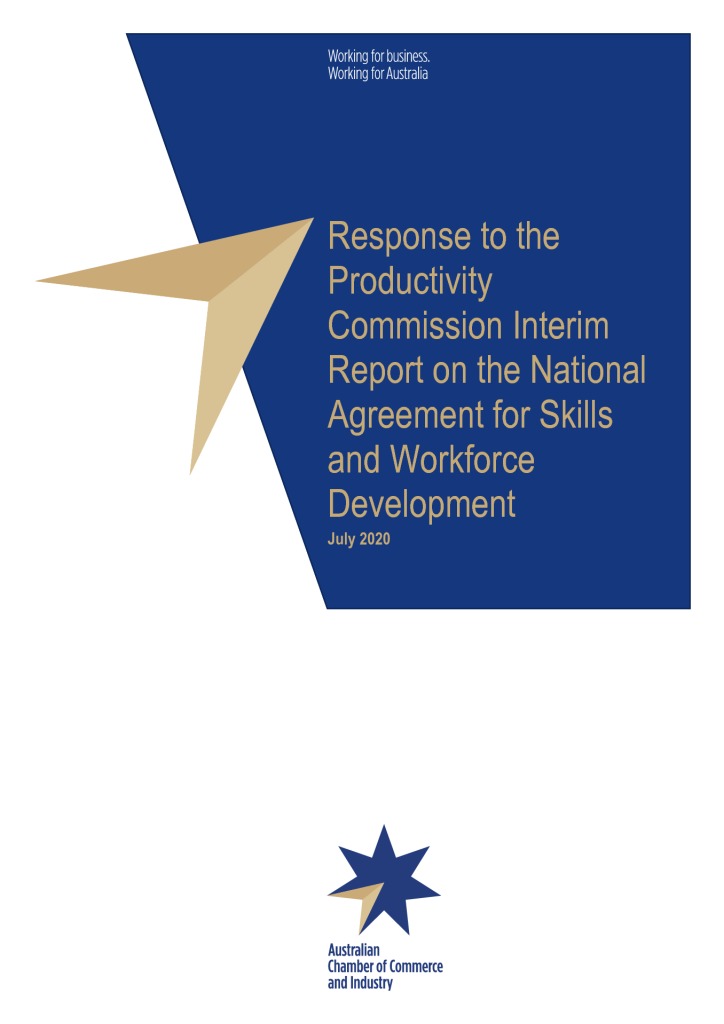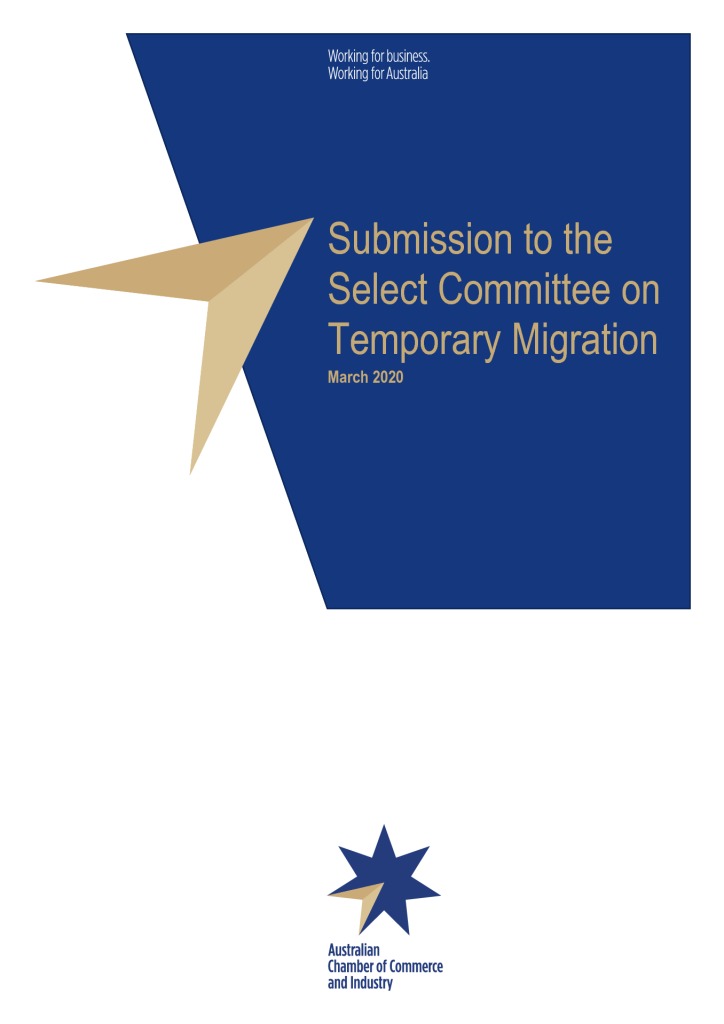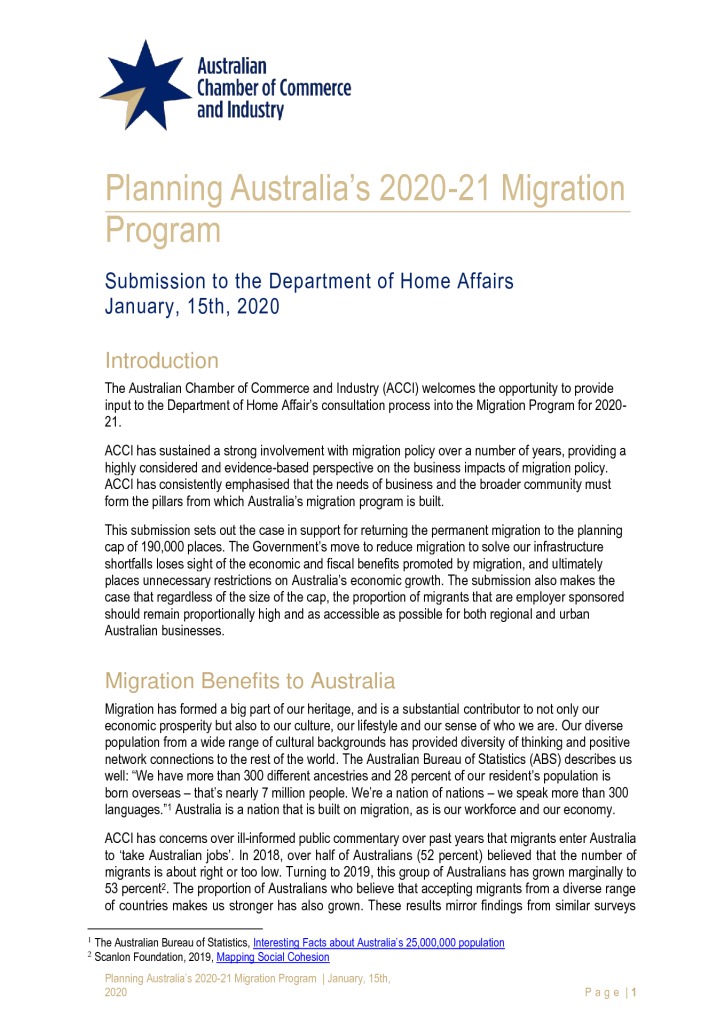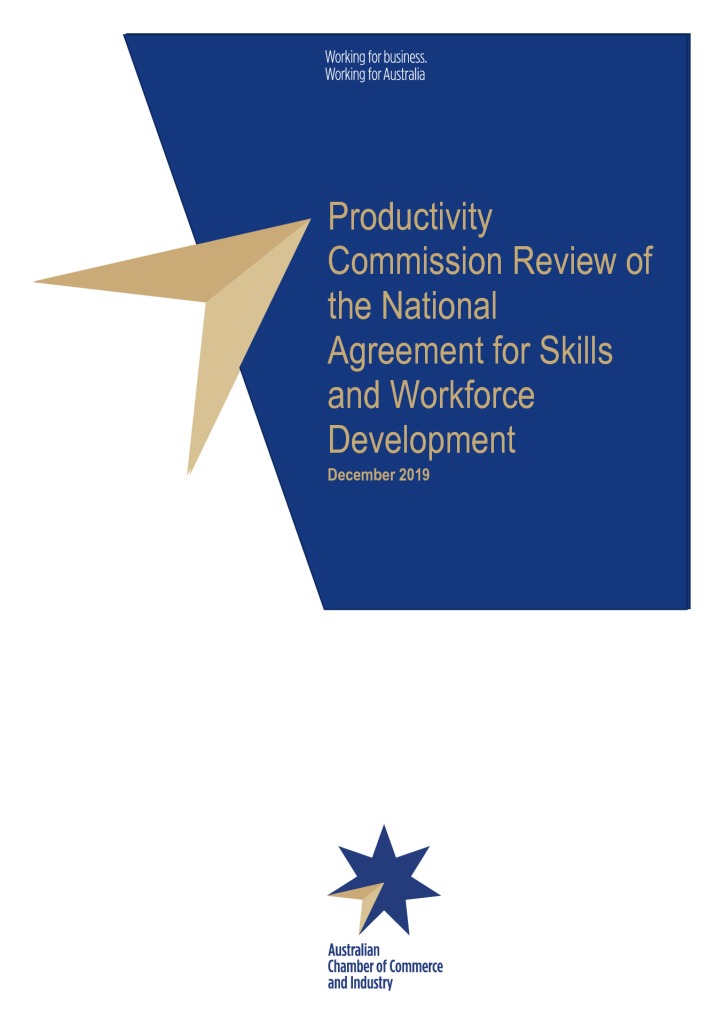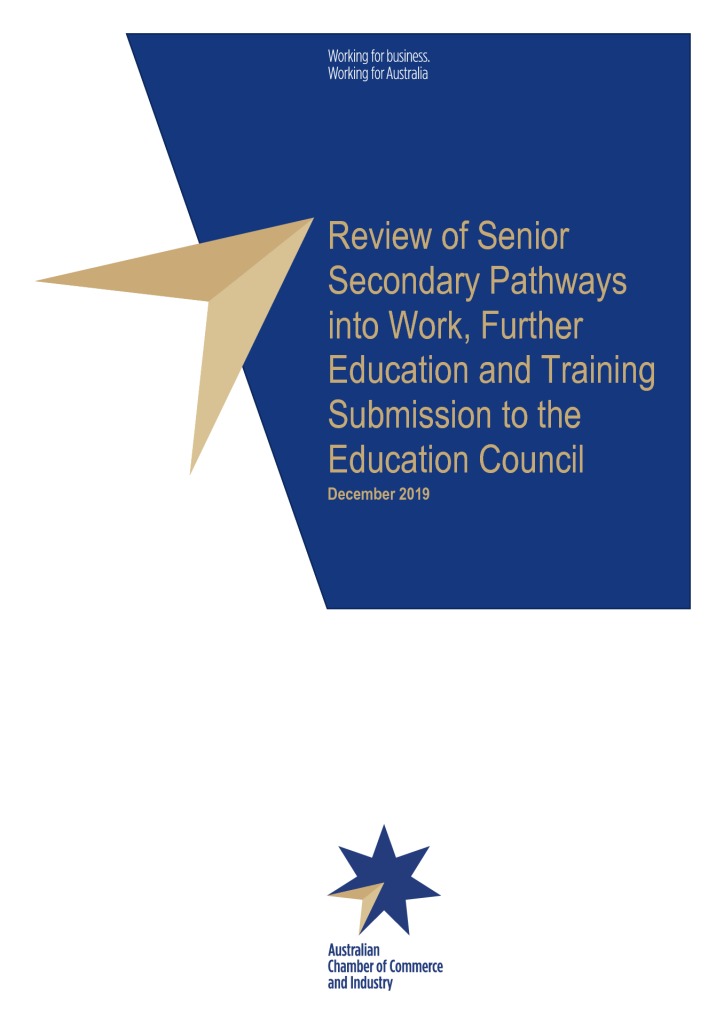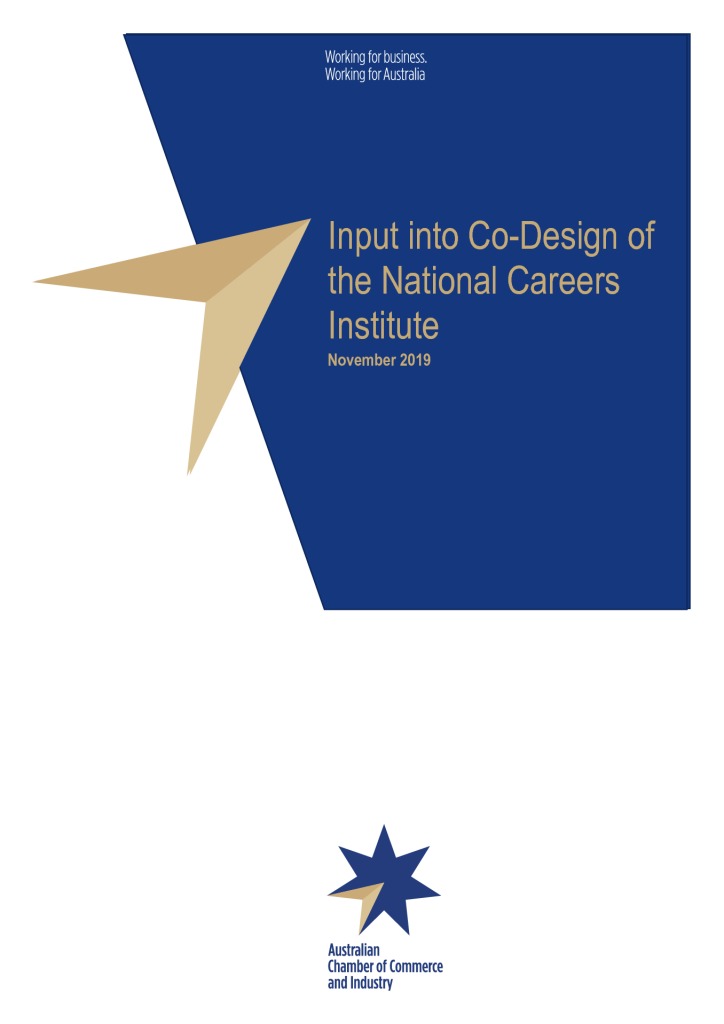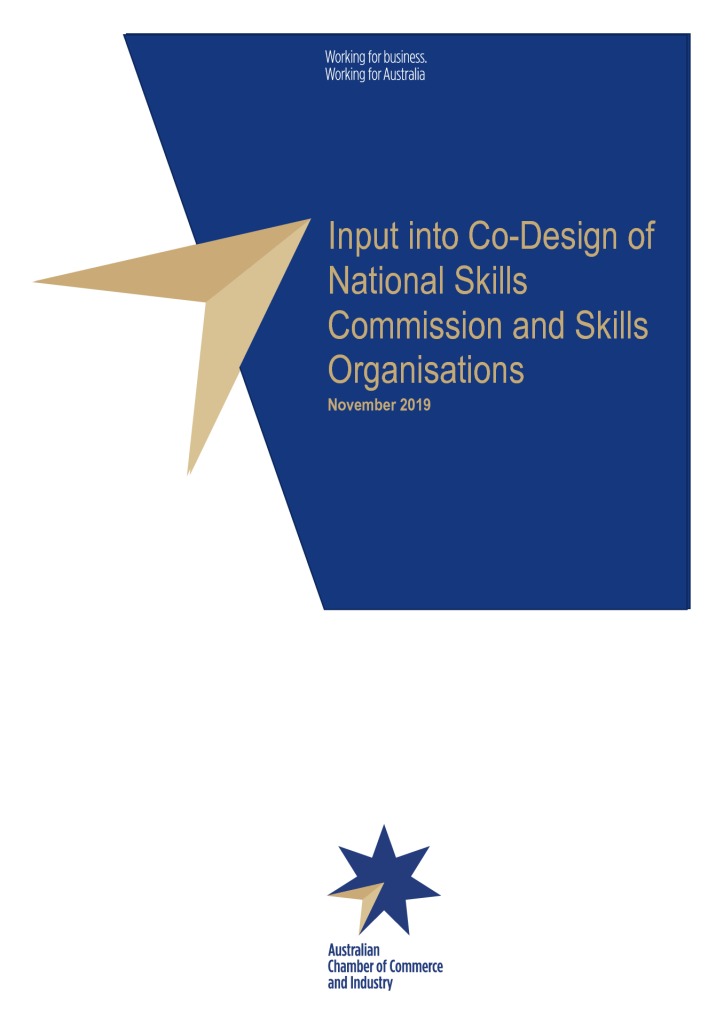Member Login
Education & Skills
See below for submissions related to education & skills.
Strategic Review of Apprenticeship Incentives
Apprenticeships and traineeships are essential parts of workforce development, they are a means of offering meaningful career pathways to workers and communities. Far beyond mere educational endeavours, they serve as integral components for addressing skill shortages, improving employment outcomes, and fostering social, economic, and employment mobility.
Supporting women to achieve VET-based careers
In Australia, there is broad engagement by women in the Vocational Education and Training (VET) sector. Over the past three years, female students have shown the highest enrolment rates in government-funded VET courses. Moreover, recent completion rates for government-funded VET courses indicate that females surpass males by 5-7 per cent, emphasising women’s recognition of the advantages of pursuing VET-based careers.
Download
15.12.23 WOMEN IN VET
PDF 533.81 KB
Higher Education Support Amendment (Response to the Australian Universities Accord Interim Report) Bill 2023
ACCI has been closely engaged with the Universities Accord review process through both our submission on the accord and an in-person appearance to the panel. Australia needs a vibrant, quality and sustainably funded post-secondary education sector as it is vital to meeting our knowledge and skills needs, now and in the future.
Australian Universities Accord Interim Report
ACCI has been actively involved in the Universities Accord review process, contributing through our submission to the Accord and in-person participation in panel discussions. The imperative of nurturing a dynamic, high-quality, and sustainable post-secondary education sector in Australia cannot be overstated; it is essential for meeting current and future knowledge and skills demands.
Australian Universities Accord
Australia needs a vibrant, quality and sustainably funded post-secondary education sector as it is vital to meeting our knowledge and skills needs, now and in the future. There are more than 1.6 million students per year who are educated at an Australian higher education provider. The Universities Accord review provides an opportunity for big picture thinking to be applied to a highly respected system that could benefit from a range of improvements to truly deliver world leading quality outcomes.
Jobs and Skills Australia Amendment Bill 2023 [Provisions]
The Australian Chamber of Commerce and Industry (ACCI) appreciates this opportunity to provide comment on the Jobs and Skills Australia Amendment Bill 2023 [Provisions].
House of Representatives Standing Committee on Employment, Education and Training: inquiry into the perceptions and status of vocational education and training
The Australian Chamber of Commerce and Industry (ACCI) welcomes the opportunity to provide a response to the House of Representatives Standing Committee on Employment, Education and Training inquiry into the perceptions and status of vocational education and training.
Download
1.03.23 VET sub
PDF 1.11 MB
Jobs and Skills Australia Discussion Paper
The Australian Chamber of Commerce and Industry (ACCI) appreciates this opportunity to provide comment on the Jobs and Skills Australia Discussion Paper.
Inquiry into Australia’s tourism and international education sectors
The Australian Chamber of Commerce and Industry (ACCI) welcomes this opportunity to provide input to the Joint Standing Committee on Foreign Affairs, Defence and Trade inquiry into Australia’s tourism and international education sectors.
Australian Apprenticeship Services and Supports Discussion Paper
The Australian Chamber of Commerce and Industry (ACCI) welcomes this opportunity to provide a response to the Department of Employment and Workplace Relations discussion paper on Australian Apprenticeship Services and Supports.
Australian Skills Guarantee Discussion Paper
The Australian Chamber of Commerce and Industry (ACCI) welcomes this opportunity to provide a response to the Department of Employment and Workplace Relations discussion paper on the Australian Skills Guarantee.
Jobs and Skills Australia Bill 2022 [Provisions] and the Jobs and Skills Australia (National Skills Commissioner Repeal) Bill 2022 [Provisions]
The Australian Chamber of Commerce and Industry (ACCI) appreciates this opportunity to provide comment to the Education and Employment Legislation Committee on the the Jobs and Skills Australia Bill 2022 and the Jobs and Skills Australia (National Skills Commissioner Repeal) Bill 2022.
Response to consultation draft of the VET Workforce Strategy
The Australian Chamber of Commerce and Industry (ACCI) welcomes the opportunity to provide input to the Department of Education, Skills & Employment Consultation Draft of the VET Workforce Quality Strategy.
Members of ACCI place the quality of vocational education and training as one of its most important employment and skills priorities. We see the strategy to improve quality as multipronged, with the current reform in training product standards and development, as well as funding approaches, all having a strong role to play alongside this work relating to quality including this VET workforce strategy.
Australian Strategy for International Education 2021 – 2030 | Submission to the Department of Education, Skills and Employment
International Education is a very valuable service export industry to Australia. Australian education providers offer a range of services to international students including school education, vocational training, higher education and English language tuition. Pre-pandemic, the industry was worth $37.5 billion to the Australian economy (2019-20)1. Even in the midst of a pandemic, international education is Australia’s fourth largest export due to offshore enrolments and online study continuing in 2020-21. In 2018, the United States was the most popular study destination for international students while Australia was the third most popular after the United Kingdom2. However, as the world continues to move to a new normal, Australia needs to approach international education as it does other valuable service export industries and remove barriers to growth while supporting its transition to a new post pandemic trading environment. The coronavirus pandemic and subsequent travel ban enacted by the Australian Government has meant the international education sector is facing an unprecedented crisis.
University Research Commercialisation Scheme | Submission to the Department of Education, Skills and Employment | April 2021
The Australian Chamber of Commerce and Industry (ACCI) welcomes this opportunity to provide input to the Department of Education, Skills and Employment (DESE) on University Research Commercialisation (URC). ACCI has long been an advocate of industry collaboration with research and development (R&D) organisations, including universities. The DESE consultation paper rightly highlights the importance of research commercialisation to increase business productivity and create jobs in the economy. International experience demonstrates that R&D ecosystems can excel at attracting and integrating significant R&D investment and effort to achieve technical leadership and high levels of commercial value-add. The United States has done particularly well in this regard, with successful companies created on the back of R&D collaboration. There is significant opportunity in Australia to increase business productivity through innovation that arises from collaboration in research and development. Australia no doubt has world class universities producing research and centres of excellence. The main issue remains converting the R&D that comes out of universities into commercial success or even early stage R&D collaboration between universities and business. This submission will address issues three and four of the consultation paper as they are most relevant to business.
Submission to the Joint Standing Committee on Migration’s Inquiry into Australia’s Skilled Migration Program | March 2021
The Australian economy is on the mend from the impacts of the COVID pandemic with both business and consumer confidence picking up. Although business conditions have improved, there
is no denying that the economy has experienced a two-speed recovery with some sectors bouncing back while others hang on for survival. Closure of Australia’s international border and imposition of domestic border restrictions has resulted in some sectors of the economy suffering greatly.
Download
ACCI JSCOM Inquiry
PDF 1002.99 KB
Submission to the Joint Standing Committee on Migration March 2021
Australia’s skilled migration program is a high priority issue for business and its virtual shut down over the last 12 months has created major concerns as shortages have been exacerbated. As the economy seeks to recover from the impacts of COVID-19, skilled migration will be a very important component in the recovery of the economy in this post COVID period. Australia’s migration program can improve access to skills and stimulate economic growth only if the program is more responsive, less complex and less expensive.
Submission on the Higher Education Job Ready Graduates Bill
There have been a number of attempts in the last decade since the demand driven system was introduced to change the funding model for Commonwealth supported higher education providers. There should be no doubt that change is needed, and the impact of the baby-bonus bump reaching tertiary education age, as well as the implications of the COVID-19 pandemic on demand for places, will create extra strains on the system. The Australian Chamber of Commerce and Industry (ACCI) broadly supports the direction of the proposed reform and recommends that the Bill be passed. However, it seeks further consideration of some aspects of the Bill, recommends a phasing of some of the larger changes, and emphasises the importance of better informing the market about how degrees and course units are funding and the impact of the changes.
Response to the Productivity Commission Interim Report on the National Agreement for Skills and Workforce Development
This response to the Interim Report on the National Agreement for Skills and Workforce Development (NASWD) encourages a focus on funding, including the importance of consistent real growth in the government investment in VET.
Submission to the Select Committee on Temporary Migration
This submission outlines the importance of a responsive temporary migration program, highlights the current shortcomings of the program and provides recommendations on how the system can be improved.
Planning Australia’s 2020/21 Migration Program
This submission sets out the case in support for returning the permanent migration to the planning cap of 190,000 places. The Government’s move to reduce migration to solve our infrastructure shortfalls loses sight of the economic and fiscal benefits promoted by migration, and ultimately places unnecessary restrictions on Australia’s economic growth. The submission also makes the case that regardless of the size of the cap, the proportion of migrants that are employer sponsored should remain proportionally high and as accessible as possible for both regional and urban Australian businesses.
Productivity Commission Review of the National Agreement for Skills and Workforce Development
The Productivity Commission’s review of the National Agreement for Skills and Workforce
Development is an opportunity to focus on the most important weakness of the vocational
education and training (VET) system.
Submission of the Education Council Review into Senior Secondary Pathways
Support for our young Australians is going backwards. One of the most important priorities for any
society is to educate the next generation and provide them every opportunity to successfully
transition from school education into employment or further education.
The evidence indicates that in Australia we are not fulfilling this role as well as we could be. With a
youth unemployment rate three times higher than the unemployment rate for people aged 25 or
over, declining standards for literacy and numeracy, and an emphasis on higher education
pathways regardless of outcomes, there is much scope for improvement.
Submission on Input into the Co-design of the National Careers Institute
The National Careers Institute is a welcome initiative. An effective and coordinated national approach to careers development will more effectively serve students and job seekers with better information and advice throughout their life. A well-informed careers market will also improve the chances of skill needs being met, and that the investment made in education and training is more effective.
ACCI sees one of the key opportunities of the National Careers Institute would be to create a ‘clearance house’ where information is deposited, exchanged and accessed (essentially a wholesale shop for careers advisers) between industry and career practitioners and other key stakeholders such as schools. Particularly within a federated environment, maintaining direct links between industry, schools, careers advisers, employment services and other key sources of career information is practically impossible without some platform for exchange. In establishing the National Careers Institute, it is also useful to clearly delineate its role at the outset, commencing with ensuring that the definition of career is succinct in a way that focuses on work and learning. The NCI then needs to operate with proper advice, particularly from industry, and within a structure that connects it to its key stakeholders including all governments, industry, schools and career sector stakeholders.
Submission on Input into the Co-Design of the National Skills Commission and Skills Organisations
The skills package announced by the Federal Government in the April 2019 Budget is a significant and welcome step along the path to improving the vocational education and training (VET) system. At the heart of the proposed new arrangements is the National Skills Commission. In acknowledgement of focus and progress, the Australian Chamber welcomed the Vision for VET that was agreed by COAG at its August 2019 meeting. It is important now that this vision be validated by consultation with industry, and that industry be involved in the drafting of a roadmap to reform. One of the key omissions from the Vision statement is a commitment by all jurisdictions to real funding growth for VET and consistency not just between jurisdictions but within them. Other sectors in education take funding growth for granted and focus their advocacy on how big that growth should be. But this situation has eluded VET, which instead has seen funding rise and fall more than once at both State and Federal level over the last two.

